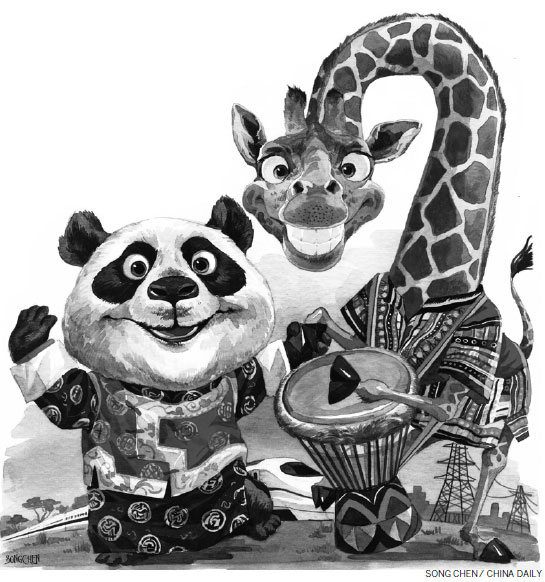A solid new start for old China-Africa ties
By Yi Fan (China Daily) Updated: 2015-12-01 08:22

Tremendous changes have taken place both in China and Africa over the decades, yet the China-Africa relationship has grown stronger with the passage of time. Politically, equality and mutual respect is the defining feature of China-Africa relationship. As fellow victims of foreign aggression and colonization, both cherish peace and independence and respect the development paths each has chosen.
In 2013, on his first overseas trip since taking office, President Xi Jinping visited Africa and put forward the principles of sincerity, practical results, affinity and good faith, which have since become the guiding principles for China-Africa ties. President Xi called for striking the right balance between principles and interests, with greater emphasis on doing what is just and right in China's cooperation with Africa. This has set the tone for China-Africa cooperation.
Economically, complementarity and mutual benefit has been a key driving force for China-Africa relations. With its rich natural and human resources and huge potential market, Africa deserves much more than being a mere recipient of aid. For years, China's approach has been to not just "offer fish" to Africans, but to help Africans to "catch fish" by leveraging its own resources for self-sustaining development. As a result, China has been Africa's biggest trading partner for six years in a row.
Mutual help and mutual support are at the base of the China-Africa partnership. When the Ebola epidemic broke out in some African countries earlier this year, China was among the first nations to respond. Similarly, after the deadly Wenchuan earthquake in 2008, Equatorial Guinea donated 2 million ($2.19 million) to China-about one euro per person.
China has firmly supported African unity and has been finding African solutions to African problems. It has contributed to 16 UN peacekeeping missions with nearly 30,000 peacekeepers, the highest among the five permanent members of the UN Security Council.

I’ve lived in China for quite a considerable time including my graduate school years, travelled and worked in a few cities and still choose my destination taking into consideration the density of smog or PM2.5 particulate matter in the region.











